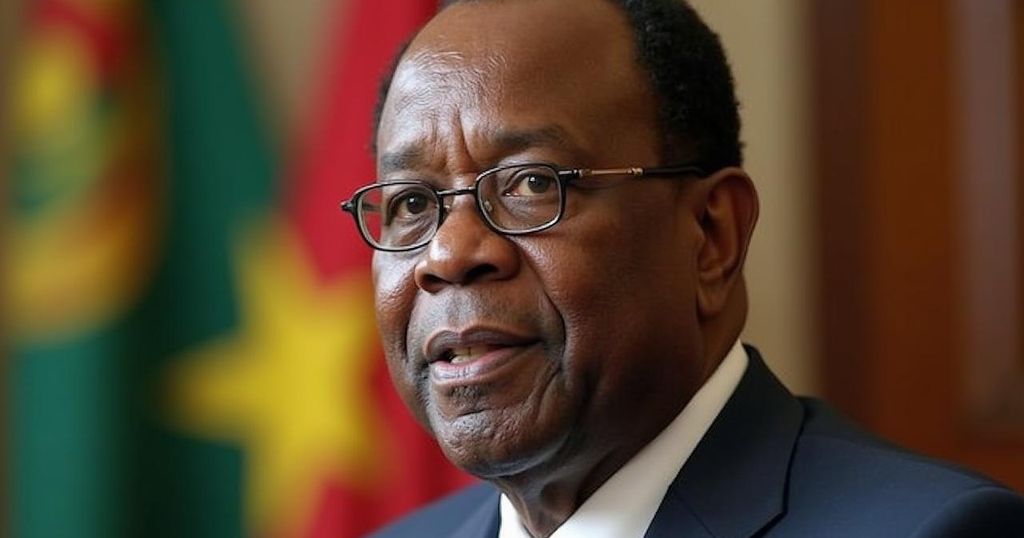Cameroon has imposed a ban on media discussions regarding President Paul Biya’s health, labeling such discourse as a national security issue. This development follows the president’s unexplained absence from public life since September, prompting speculation and concern. Government officials have denied rumors of health complications, while critics argue that the ban is a violation of press freedom, raising larger reflections on political stability in Cameroon.
The government of Cameroon has instituted a ban on media discussions regarding the health of President Paul Biya, who is 91 years old and has not made a public appearance since early September. This prohibition was announced by the Interior Minister, Paul Atanga Nji, through a letter dated October 9, which emphasized that such discussions are “strictly prohibited” and described the matter as one of “national security.” Additionally, the government has established “monitoring cells” designed to oversee online discourse concerning the president’s health. Biya was last present in public at a summit in Beijing, and subsequent to that event, he missed several significant international gatherings, including the United Nations General Assembly in New York and a summit of French-speaking nations in Paris. In response to growing concerns and speculation regarding the president’s wellbeing, government spokesperson Rene Sadi asserted that the rumors circulating in media and online platforms are “pure fantasy” and confirmed that Biya will be returning to Cameroon soon after reportedly visiting Europe privately after attending the summit in Beijing. The media ban has drawn criticism as an infringement on press freedom, with commentators arguing that citizens have a right to inquire about the health of their elected leader. Hycenth Chia, a journalist from Yaounde, remarked, “The president is elected by Cameroonians and it’s just normal that they worry about his whereabouts.” The ban has raised alarm among advocacy groups such as the Committee to Protect Journalists (CPJ), which condemned the government’s actions as outrageous, suggesting that using national security to suppress public interest in this major issue is unacceptable. With President Biya having ruled Cameroon for over four decades, concerns regarding the lack of a clear succession plan add to the tensions surrounding his health. Observers warn that his possible demise could lead to further political instability in a region that has already experienced multiple military coups since 2020. Biya’s tenure is noted to be second only to Teodoro Obiang Nguema Mbasogo of Equatorial Guinea in terms of longevity in power in Africa.
In recent years, Cameroon’s political landscape has been characterized by government-effort silencing of free expression, particularly regarding leadership matters. President Paul Biya’s extended rule since 1982 positions him as one of Africa’s longest-serving leaders, a fact that contributes to the sensitivity surrounding his health. As rumors persist regarding his wellbeing, the government’s response aims to maintain a façade of normalcy even amidst political speculation. The lack of a defined succession plan heightens concerns about future governance stability, emphasizing the challenges of transitioning leadership in a nation marked by prolonged autocracy.
The ban on media discussions about President Biya’s health exemplifies the tensions between government control and freedom of expression in Cameroon. Amidst concerns for the president’s wellbeing and the implications of his potential absence from power, this action denotes an escalation in state censorship. The responses from journalists and international advocacy groups highlight the critical intersection of public interest and governmental oversight, particularly in a country that has witnessed significant political unrest in recent years.
Original Source: www.aljazeera.com






